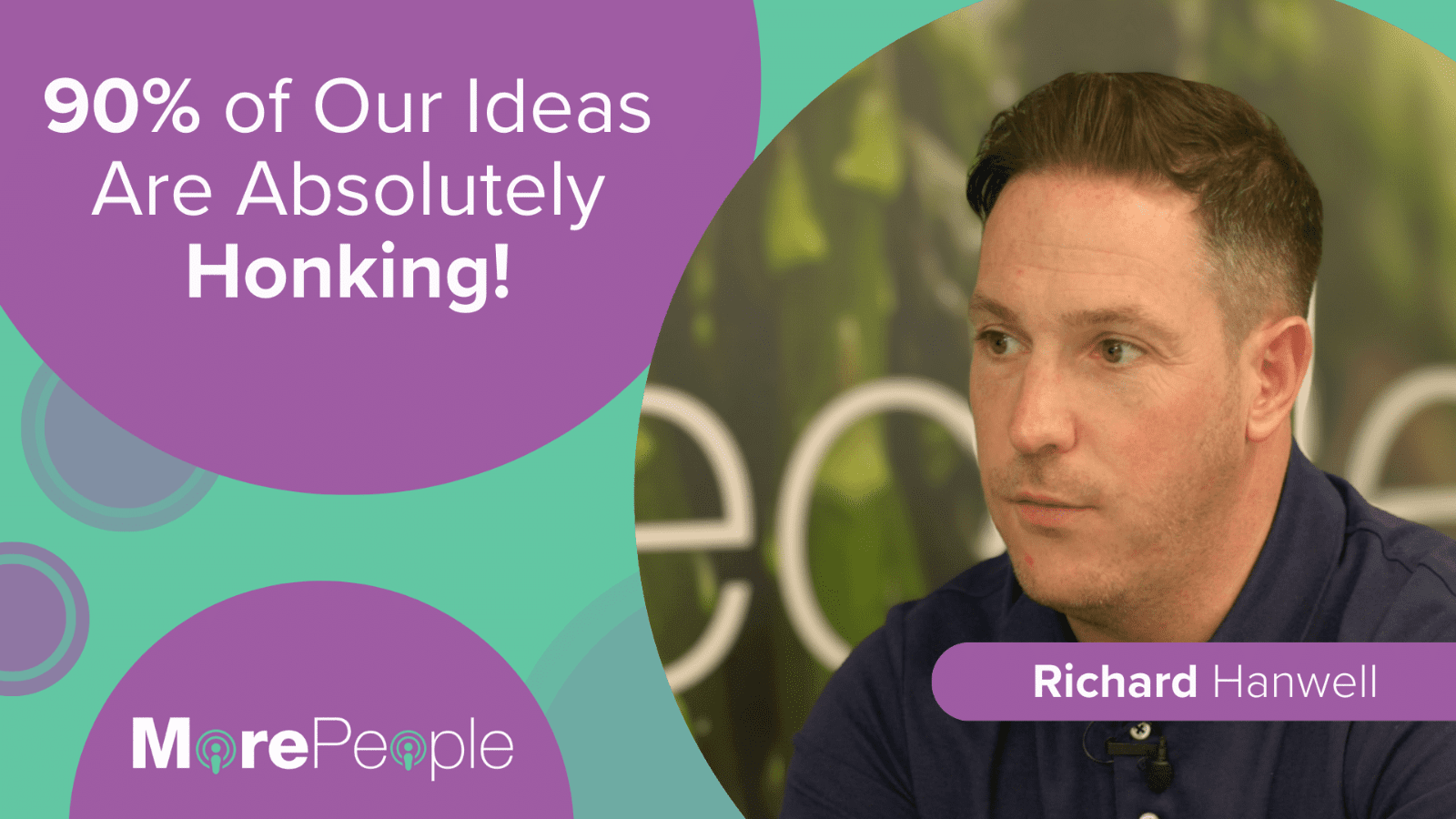
Episode 15: The MorePeople Podcast on Training and Development
Training, Development & The Pursuit of Progress: Why It’s at the Heart of What We Do
At MorePeople, we’re deeply passionate about growth, not just in the businesses we work with, but within our own team. In a recent episode of The MorePeople Podcast, CEO Andrew Fitzmaurice and Managing Director Richard Hanwell sat down to talk about why training and development is not just a priority. It’s part of our DNA.
More Than a Buzzword
Training and development isn’t a poster slogan in our office. It’s a daily, lived experience. We’ve made it a non-negotiable priority with our “Training at the Centre” initiative. That means we’re carving out meaningful time, during core working hours, to upskill our team, challenge ourselves, and support succession planning.
Why? Because growth doesn’t happen by accident. It requires intent. It requires investment. And, as Richard put it, “It’s the difference between having eight years of experience and one year repeated eight times.”
The Power of Vulnerability in Leadership
Growth also takes humility. Andrew noted, “We’re confident and competent but that doesn’t mean we know everything.” In fact, some of the best ideas we’ve implemented started as something rough on a whiteboard. Many never see the light of day, and that’s okay. Vulnerability fuels innovation. It creates a space where it’s safe to try, fail, learn, and improve.
Training vs. Overload
One challenge we’ve come to appreciate is balancing enthusiasm for new models with our team’s ability to absorb and apply them. Between books, podcasts, training sessions and external consultants, we’re surrounded by knowledge. But knowledge without prioritisation can quickly become noise.
As Andrew put it: “We can’t roll out 37 models in one day even if we love every one of them.” That’s where triage comes in, choosing the right training for the right moment, tailored to the needs of the team and business.
Knowing Your Audience
One-size-fits-all training doesn’t work. People learn in different ways, at different paces, and with different needs. That’s why we’ve embraced personality profiling and learning style assessments. Understanding how someone processes information helps us avoid blank stares and build real engagement.
Take, for example, a member of our team who’s a classic reflector. Their stoic silence in meetings might seem disengaged until they drop a perfectly timed, thoughtful insight that reframes the entire discussion. Knowing how people tick helps us unlock their potential without misinterpreting their signals.
Creating Space for Courage
Being courageous isn’t just for leadership. We want everyone on the team to feel empowered to try new things, even if they might fail. That’s where real development happens. As Richard said, “You don’t have to hit rock bottom to learn, but you do have to step out of your comfort zone.”
We don’t want to simply “survive” as a business. We want our people to thrive. And that means developing not just skills, but the mindset to keep evolving.
A Final Word
Training is about more than ticking a box. It’s about building a culture of curiosity, courage, and continuous improvement. When you understand the people you’re leading, their styles, their strengths, and yes, their blind spots, you can create something truly powerful.
As Richard shared, “Not everyone should be like us. The world would be very boring if they were.” And he’s absolutely right.
So here’s to learning. Here’s to leading. And here’s to being just 1% better every day.
